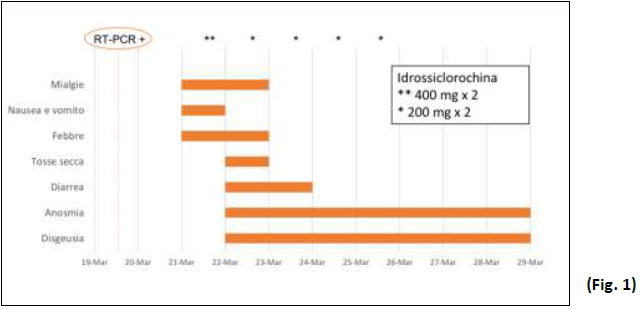- Who we are
- Schools and Training
- Agenda
- Events
- Patients
- Payments
- FAQ
- Y-SICCR
Dear Colleagues,
I would like to share my experience of these days, in a moment that is putting a huge strain on all of us, as doctors, men and women facing a pandemic that is spreading in 200 countries around the world, with an ever-growing case fatality rate.
Since 21 February 2020, Italy has rapidly become the worst-hit country, burdened by the highest death toll which is about to triple that of China. But a particularly alarming figure is the rate of infection among health workers, which reaches 9% in our country.
Last March 19, following the latest directives of the Treviso Hospital – where I work at the IV Surgery Unit – I was tested for COVID19 by nasopharyngeal swab, while yet asymptomatic. I emphasize that the Veneto region has implemented, since the early stages of the epidemic, an extended population screening policy, with over 18,000 tampons per million inhabitants performed on March 28.
I cannot hide the regret mixed to a sense of confusion felt at the news of testing positive. The ‘quarantine’, a term that until recently I heard so infrequently pronounced, had just begun for me. But on March 20, upon awakening, the anguish was gone. I was reflecting on the latest evidence about the crucial role of asymptomatic subjects in the spread of the epidemic, reported on Science a few days earlier by Li and coll., who claimed that 86% of all the infections recorded in China before the closure of Wuhan on January 23 was undocumented, and that this group had been the source of infection in 79% of documented cases. I was trying to selfconvince myself of being part of the ‘dangerous’ asymptomatic group and that a hashtag and ‘istayhome’ was enough to sort everything out. But I remember going to bed more tired than usual and, on the night between 20 and 21 March, the onset of chills and the reading of 38.6 °C on the thermometer erased my name from the asymptomatic group once and for all.
In the morning I had no doubts: although in the absence of evidence that hydroxychloroquine may affect outcomes in such an early stage of the infection, I decided to start it according to the dosage suggested by Yao and coll. in a study published in Clinical Infectious Diseases on March 9 (Fig.1). The onset of nausea and two vomiting episodes characterized the first part of the day. The temperature, however, never reached its initial peak nor crossed 37.7 °C even during the following day, when I start getting infrequent dry cough and diarrhoea. Although I already felt much better than the previous day, I was beginning to realize that I had lost both smell and sense of taste, a quite odd sensation in the absence of a stuffy nose.
While the anosmia was complete (to the point of not perceiving the smell of perfume), the sense of taste was not completely abolished; I therefore prefer to name it dysgeusia rather than ageusia: indeed, I could perceive saltiness and sourness, but no trace of the sweet and bitter, let alone the umami … I have not got any improvement as yet, but according to Claire Hopkins, president of the British Rhinological Society, who is collecting data from patients with anosmia in several countries, I should be able to recover within 2 weeks after the onset (hopefully!).
Driven by my experience and the circumstances that we are all experiencing, I decided to promote an anonymous survey, in a concrete attempt to describe the situation of Italian health workers (doctors, nurses and socio-health workers) who are facing the COVID19 emergency.
I would be honoured to receive your contribution and infinitely grateful if you could help spreading the link to join the survey:
https://qmul.onlinesurveys.ac.uk/icovid19
In whatever circumstances, we are proving that we cannot betray our mission.
Good luck everyone
Ugo Grossi,
Y-SICCR

Last insertion:
Toilet Training
Read ›
Dott.ssa Paola De Nardi
Rubrica diretta a quanti volessero porre dei quesiti al Presidente SICCR, Dott.ssa Paola De Nardi.